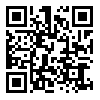BibTeX | RIS | EndNote | Medlars | ProCite | Reference Manager | RefWorks
Send citation to:
URL: http://jhsme.muq.ac.ir/article-1-5-fa.html
Background and Objectives: Enjoining good and forbidding (EGFE) evil are two fundamental topics in Islam. Many verses and narratives underscore the social, religious and political duties implied by enjoining good and forbidding evil. After all, these two divine treasures have been neglected because of indulgence and forgetfulness. The prime reason for this negligence seems to be the obliviousness of employees in different organizations throughout the country. The purpose of this study is to assess a hospital employees' knowledge of enjoining good and forbidding evil. Methods: This cross-sectional analytic descriptive study was done in a hospital of Isfahan province in 2012. The data were collected from the employed staff of the hospital in all the organizational ranks. No sampling was done in this census study and the data were elicited from all the members of the population. The data collection instrument was a 28-item questionnaire whose validity and reliability were confirmed. The data were analyzed using SPSS 16 software. Results: In the current study, 50.9% of the participants were men and 49.1% were women. The percentage scores of the staff knowledge of the bounden duties of EFGE were 72%; effects of EFGE 73%; moralities of EFGE 85%; virtue examples 78%; and evil examples 72%. The overall knowledge of EFGE turned out to be 76%. There was a meaningful difference between the moral dimension in men and women as the women’s knowledge was higher (P=0.045). Based on the analytical results of analysis of variance (ANOVA) test, there was no meaningful difference between the scores of the EFGE with demographic variables (P> 0.05). Conclusion: The results indicated that the knowledge of the hospital staff of enjoining good and forbidding evil was satisfactory. Requisite training of the knowledge of enjoining good and forbidding evil, its effects, and the evil examples could result in the promotion of their knowledge score.
| بازنشر اطلاعات | |
 |
این مقاله تحت شرایط Creative Commons Attribution-NonCommercial 4.0 International License قابل بازنشر است. |




